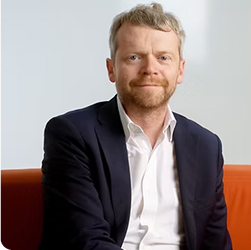Transformation
Transformation is an increasingly complex art, notably due to the accumulation and acceleration of projects within companies. Today, even less than yesterday, can one claim to manage all the dimensions of an organization in a mechanistic way. For over 20 years, Kéa has been supporting its clients in navigating this complexity and driving their transformation.
How we support
our clients
We support Executive Committees in driving their company’s transformation on two levels: (1) designing and initiating the transformation, and (2) ensuring its deployment and broad-based engagement.
In the design and initiation phase, this means:
- defining the vision and sharing the vision across the entire organization;
- setting up the project organization, defining governance structures and decision-making models;
- choosing the most effective modes of action to facilitate and accelerate execution (test & learn, agile, project mode, lab mode, etc.);
- knowing when to pause if an idea is not yet mature, seizing opportunities with informed pragmatism, and leveraging the system’s existing energies.
Bringing transformation to life in the field requires listening, pedagogy, dialogue, simplification, and rebuilding connections.
We work in co-construction with our clients, enabling us to design a target vision that truly reflects who they are, raise awareness of the need for change (the case for change), effectively mobilize teams, and secure the achievement of objectives aligned with business priorities.
Our teams bring together diverse profiles and expertise to design transformation approaches tailored to our clients’ challenges: industry experts, functional experts, trainers, coaches & mentors, facilitators (physical & digital), and specialized experts (innovation designers, data analysts, econometrics specialists, etc.).


We work in co-construction with our clients, which allows us to shape a target that reflects their identity, foster awareness of the need for transformation (case for change), effectively mobilize teams, and ultimately secure the achievement of objectives in alignment with business priorities.
Our
capabilities
Cultural
Transformation
It is in our DNA to define and implement integrated transformation, combining strategy and culture. And for good reason: our corporate culture influences our most strategic decisions and guides our actions. While it is a powerful vehicle for identity and unity, often a source of pride and commitment, and therefore a driver of performance, it can prove too burdensome or too limiting during critical turning points (the arrival of new players, disruption, mergers). However, some of the largest companies show that it is possible to influence culture and turn it into a major factor of differentiation and competitiveness.
That is why we help our clients make culture a key asset of their company so that it can succeed in a triple challenge: being authentically responsible, innovating, generating wealth and creating its future, and transforming itself.
Our Cultural Transformation Projects
We support business leaders internationally, across a wide variety of sectors, at key moments when reflecting on culture proves decisive: defining a vision, navigating a strategic shift, the first 100 days of a new leader, transformation, mergers, or new organizational models. At these turning points, cultural reflection can focus on strategic agility, innovation speed, operational excellence, quality, safety, employee engagement, or Customer Centricity.
There are measurement tools such as the Cultural Value Assessment (CVA), one of the cultural transformation instruments developed by Richard Barrett, which Kéa regularly deploys (Kéa is accredited by the Barrett Values Center). Using the CVA and its survey framework, our consultants assess the cultural health of an organization based on personal, perceived, and desired values. It is relatively straightforward to measure the economic loss caused by limiting values: for instance, siloed operations can lead to lost business opportunities, while a lack of customer focus can undermine growth dynamics. These cultural shortcomings are, in fact, opportunities to unlock and leverage to drive performance.
To take this work further, in late 2017 we launched the think tank “Quart d’Heure d’Avance: Culture & Strategy”, bringing together around twenty leaders and practitioners eager to innovate, exchange ideas, and co-construct on this strategic topic among peers.
New ways
of working
With over 20 years of research and publications on the “New Ways of Working” — regularly shared through our releases (La Revue, the French Values Barometer, the Letter on Sociodynamics…) — we are deeply committed to supporting our clients in reimagining and re-enchanting work by reconciling three dimensions: organization & management; individuals & the collective; space, time & resources.
Our Projects on the New Ways of Working
We have extensive experience covering the different components of (re)designing work: work organization, managerial practices, cultural transformation, office spaces… all with a strong focus on ensuring successful implementation.
The projects we lead often include a work diagnosis, clarification of intent and strategic coherence, external inspiration (innovation and trends in management, organization, time and workspace design), co-construction in action with managers and teams, measurement and steering of transformations, as well as collaboration with employee representatives.
We regularly combine the extent of our expertise with the involvement of targeted specialists in certain areas (future of workplaces, designers, etc.), depending on specific needs.
Empowerment
Companies are facing profound changes (digitalization, internationalization, new forms of competition, regulation, etc.) whose scale and speed are unprecedented. At the same time, employees’ expectations have changed, their relationship with work has become multifaceted, and their attachment to the organization has shifted. This calls into question the way companies work and manage, which often proves unsuited to these new challenges. In this context, employee autonomy is no longer an option but has become a driving force for the company’s dynamics.
Our employee empowerment projects
Is it possible, by revisiting the company’s operating methods and developing new managerial approaches, to create a culture based on trust and autonomy that unlocks performance? We believe so. To achieve this goal, we support our clients’ empowerment transformation programs by working on four areas: interconnected local experiments (i.e. small autonomous islands), the creation of conditions for autonomy by managers (transparency of information between teams, accountability for results, trust and cooperation), managerial transformation and the necessary organizational changes, which must come as a consequence of the teams’ autonomy and not as a prerequisite.
Discover
PBM
To guide our clients on their journey towards a desirable economy, we have developed the Positive Business Map©: a compass for charting your own course through nine areas of corporate responsibility.
Learn more








